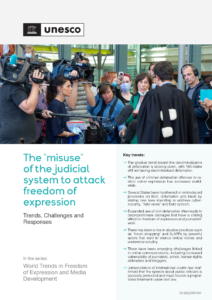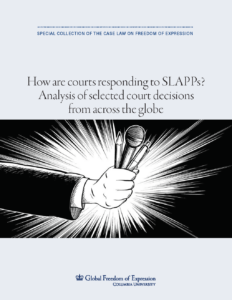4 May
Report Launch: How are courts responding to SLAPPs? Analysis of selected court decisions from across the globe
Sponsored by Columbia GFoE, ARTICLE 19 and UNESCO
Strategic lawsuits against public participation (SLAPPs) are on the rise internationally and they pose a significant threat to freedom of expression, media freedom and other human rights. In countries without specific legislative protection against SLAPPs, the courts can play a crucial role in ensuring that SLAPPs do not prevent the exercise of fundamental rights, do not limit the vital role of civil society and do not shrink civic space.
To better understand how SLAPPs are manifesting in different jurisdictions and how courts are responding to them, ARTICLE 19 reviewed selected case law collected in the Global Freedom of Expression Database. The study focused on whether courts recognise the danger posed by SLAPPs and whether and how they assess SLAPP cases to ascertain some basic trends from selected cases.
This event will discuss the general findings of the report and responses by international bodies and identify gaps that require stronger protection against SLAPPs to be adopted on international, regional, and national levels.
Additionally, UNESCO will discuss the application of defamation laws in the context of SLAPPs as documented in their recent report “The ‘misuse’ of the judicial system to attack freedom of expression: trends, challenges and responses.”
Speakers:
- Catalina Botero, Consulting Director, Columbia Global Freedom of Expression
- Barbora Bukovska, Senior Director for Law and Policy, ARTICLE 19
- Mehdi Benchelah, Senior Project Officer, Freedom of Expression and Safety of Journalists, UNESCO
- Stephen Townley, Legal Director of the TrialWatch initiative at the Clooney Foundation for Justice
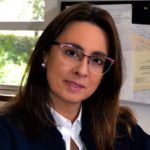 Catalina Botero Marino is the consulting director of Global Freedom of Expression. She is a lawyer, director of the UNESCO Chair on Freedom of Expression at the Universidad de Los Andes, co-chair of the Oversight Board of Facebook and Instagram, member of the external transparency panel of the Inter-American Development Bank, commissioner of the International Commission of Jurists and member of the Advisory Board of the International Bar Association’s Human Rights Institute. She is an adjunct professor at American University’s Human Rights Academy. She was Special Rapporteur for Freedom of Expression of the Inter-American Commission on Human Rights of the OAS, Dean of the Faculty of Law of the Universidad de Los Andes, and an Associate Judge of the Constitutional Court and of the Council of State in Colombia.
Catalina Botero Marino is the consulting director of Global Freedom of Expression. She is a lawyer, director of the UNESCO Chair on Freedom of Expression at the Universidad de Los Andes, co-chair of the Oversight Board of Facebook and Instagram, member of the external transparency panel of the Inter-American Development Bank, commissioner of the International Commission of Jurists and member of the Advisory Board of the International Bar Association’s Human Rights Institute. She is an adjunct professor at American University’s Human Rights Academy. She was Special Rapporteur for Freedom of Expression of the Inter-American Commission on Human Rights of the OAS, Dean of the Faculty of Law of the Universidad de Los Andes, and an Associate Judge of the Constitutional Court and of the Council of State in Colombia.
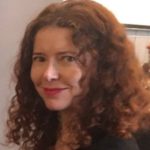 Barbora Bukovská has been ARTICLE 19’s Senior Director for Law and Policy since 2009. She leads the development of ARTICLE 19 policies and provides legal oversight across the organization. Barbora has extensive experience working on a range of human rights issues, including protection from discrimination, access to justice, deprivation of liberty, reproductive rights, and community development. She also initiated about 50 cases at the European Court of Human Rights on these issues. From 2006 to 2008, she was the Legal Director at the Mental Disability Advocacy Centre, an international organization working on the rights of people with disabilities in Europe and Central Asia.
Barbora Bukovská has been ARTICLE 19’s Senior Director for Law and Policy since 2009. She leads the development of ARTICLE 19 policies and provides legal oversight across the organization. Barbora has extensive experience working on a range of human rights issues, including protection from discrimination, access to justice, deprivation of liberty, reproductive rights, and community development. She also initiated about 50 cases at the European Court of Human Rights on these issues. From 2006 to 2008, she was the Legal Director at the Mental Disability Advocacy Centre, an international organization working on the rights of people with disabilities in Europe and Central Asia.
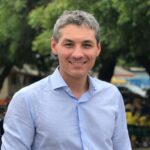 Mehdi Benchelah, Senior Project Officer, Section for Freedom of Expression and Safety of Journalists, UNESCO. Mehdi Benchelah is a senior project officer at UNESCO and is coordinating the Rule of Law, Policy and Freedom of Expression Team within the Section for Freedom of Expression and Safety of Journalists. He coordinates the Judges’ Initiative, a global strategy for the judiciary systems on freedom of expression, access to information and safety of journalists, by fostering strategic partnerships with Regional Human Rights Courts, Supreme Courts, Judicial Training Institutes and Prosecutors’ Offices across the world. He also coordinates the implementation of an initiative to train law enforcement officers on human rights, freedom of expression and safety of journalists’ related issues, as well as their relationship with the media. He is also in charge of the Media and Elections programme to tackle disinformation and violence during election periods while respecting international standards on freedom of expression.
Mehdi Benchelah, Senior Project Officer, Section for Freedom of Expression and Safety of Journalists, UNESCO. Mehdi Benchelah is a senior project officer at UNESCO and is coordinating the Rule of Law, Policy and Freedom of Expression Team within the Section for Freedom of Expression and Safety of Journalists. He coordinates the Judges’ Initiative, a global strategy for the judiciary systems on freedom of expression, access to information and safety of journalists, by fostering strategic partnerships with Regional Human Rights Courts, Supreme Courts, Judicial Training Institutes and Prosecutors’ Offices across the world. He also coordinates the implementation of an initiative to train law enforcement officers on human rights, freedom of expression and safety of journalists’ related issues, as well as their relationship with the media. He is also in charge of the Media and Elections programme to tackle disinformation and violence during election periods while respecting international standards on freedom of expression.
Mehdi Benchelah was posted in Haiti from 2010 to 2011 following the 2010 earthquake to coordinate UNESCO emergency programmes for the recovery of the media sector and the initiatives to support the culture sector. He was the Head of UNESCO Office in Tunisia from 2012 to 2014 following the Revolution and democratic transition, and coordinated the support of the media law reform, capacity-building activities for the media including in times of election, and other activities to support national authorities and civil society organizations.
Prior to joining UNESCO, Mehdi worked for a decade as a freelance reporter covering international affairs and conflicts in the Arab region, Africa and Latin America. Notably, he covered the Algerian civil war, the Second Intifada in Palestine and Israel, the Iraq war following the United States’ 2003 invasion, and the drugs war in Latin America. He was the permanent correspondent of Radio France and the leading magazine Le Point while he was based in the Gaza strip covering the Israeli-Palestinian conflict and Middle East news from 1998 to 2000.
A graduate of the Law School of Sorbonne University Paris I with a Masters’ degree in Law, he is the author of non-fiction: Le Pèlerin de Jerusalem (with Jean Lecuyer, J.C Lattes publishing 2000), Journal d’Algérie 1991-2001 (with Michael Von Graffenried, 2003) and fictions books: Les flamboyants de Gaza (Cherche Midi publishing 2004) and Bassora-Express (Cherche Midi publishing 2006).
 Stephen Townley is Legal Director of the TrialWatch initiative at the Foundation. Previously, he served as Deputy Legal Adviser to the U.S. Mission to the UN in New York, Deputy Legal Adviser to the U.S. Mission to the UN in Geneva, and Special Assistant to the Legal Adviser at the U.S. Department of State, among other government positions. He has published on international law topics in journals such as the Chicago Journal of International Law and the Vanderbilt Journal of Transnational Law. He clerked on the U.S. Court of Appeals for the Second Circuit and holds a J.D. from Yale Law School and a B.A. from Yale College.
Stephen Townley is Legal Director of the TrialWatch initiative at the Foundation. Previously, he served as Deputy Legal Adviser to the U.S. Mission to the UN in New York, Deputy Legal Adviser to the U.S. Mission to the UN in Geneva, and Special Assistant to the Legal Adviser at the U.S. Department of State, among other government positions. He has published on international law topics in journals such as the Chicago Journal of International Law and the Vanderbilt Journal of Transnational Law. He clerked on the U.S. Court of Appeals for the Second Circuit and holds a J.D. from Yale Law School and a B.A. from Yale College.


